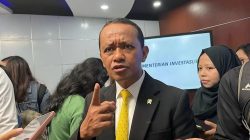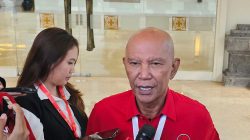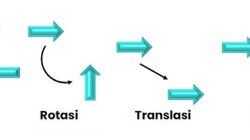The Struggle for Intellectual Sovereignty in Africa
Africa is rich in human talent, ideas, and resources. However, the continent’s potential remains untapped due to broken systems that fail to convert this wealth into real power. Its economies are vulnerable, its militaries dependent, and its developmental path is often shaped by external forces. One of the most overlooked reasons for this fragility is the lack of strong institutions of knowledge. African nations have not invested sufficiently in their thinkers, researchers, and problem solvers.
Support kami, ada hadiah spesial untuk anda.
Klik di sini: https://indonesiacrowd.com/support-bonus/
Without spaces where local minds can ask difficult questions and develop real solutions, the continent becomes overly reliant on external sources for ideas. This dependence has a cost—not just in terms of intellectual capital, but also in sovereignty itself.
The Strategic Cost of Intellectual Dependence
Strong nations are powered by internal engines of thought. These include institutions that research, innovate, plan, and defend national interests. In Africa, however, the intellectual and strategic infrastructure needed to govern modern states is alarmingly thin. Fewer than a dozen think tanks across the continent have any serious influence on national policy. Defence doctrines are often copied from Western frameworks, while science and technology funding is negligible, forcing young innovators to rely on foreign grants with conditions attached.
This lack of homegrown research institutions leads to policies that are borrowed rather than built, and ideas that are imported rather than generated. Strategy becomes reactive instead of sovereign, creating a cycle of dependency. Economies remain extractive rather than innovative, and militaries consume donor equipment without developing doctrine suited to African terrain and threats. Universities produce graduates trained to seek employment rather than solve problems, and a generation of African youth grows up believing that answers must always come from elsewhere.
Support us — there's a special gift for you.
Click here: https://indonesiacrowd.com/support-bonus/
Bureaucracy as a Barrier to Innovation
Starting a research center or think tank in many African countries can feel like pushing against a locked door. Young people with serious ideas often face a wall of silence or suspicion. The government system makes little difference—it often takes months to complete even the most basic steps. Forms are handed out with no guidance, requirements are unclear, and decisions rarely come. Instead of support, the system feels designed to wear you down.
Local officials, rather than encouraging new thinking, often see independent initiatives as a threat. In some countries, the process is buried under layers of licensing requirements that seem to multiply without reason. In others, applications are simply ignored, left to gather dust for years. What begins as an effort to build something meaningful quickly turns into a dead end. The very institutions meant to encourage innovation end up stifling it before it even begins.
This is not merely a technical problem; it is a structural defect that undermines the very idea of an indigenous intellectual class. How can a continent chart its own future when it actively blocks those trying to think, write, and build that future?
Rethinking Progress: The Role of R&D, Science, and Strategy
Africa will not become self-reliant by importing blueprints. Development must be imagined, designed, and driven from within. This begins with recognizing that ideas are power. No society industrialized without investing in scientific research. No state defended its borders without a strategic brain trust. And no nation advanced by merely executing what others designed.
Africa needs research institutions that are not beholden to foreign agendas but rooted in national priorities. It needs scientists and engineers who generate knowledge from within, understanding local health systems, agriculture, energy gaps, and digital tools tailored to African realities. The same applies to security—military academies and strategy institutes must stop copying foreign doctrines and instead develop ideas grounded in the terrain and political dynamics of regions like the Sahel, the Great Lakes, and the Somali coast.
Imported solutions do not work where the context has been ignored. Africa also needs a narrative shift. Research and development is not a luxury—it is infrastructure. A think tank is not an NGO; it is a security asset. A laboratory is not a cost; it is a platform for independence.
A Call to the Youth: From Recipients to Builders
Africa’s youth must rise to this challenge not merely as activists or employees, but as the architects of new institutions. It requires builders—young people willing to design the institutions their societies have been denied. The tools are no longer out of reach. With access to research, digital technologies, and global networks, the excuses have faded.
A young engineer in Mogadishu, a policy thinker in Accra, or a researcher in Johannesburg no longer has to ask for permission or wait for direction. The resources to learn, create, and lead are already in their hands. What remains is the decision to act.
The weight of the future rests with this generation. Not as beneficiaries of change, but as its drivers. If Africa is to become self-reliant, sovereign, and just, it will be because its youth chose to build more than careers. They must build states, shape systems, and defend the continent’s right to define its own path.
The youth must launch local research groups, open-source think tanks, community labs, and online forums where African problems are analyzed from African perspectives. They must push universities to invest in innovation hubs and policy centers. They must refuse to be intellectual subcontractors and instead become the authors of new paradigms.
But they cannot do this alone. Governments must create enabling environments, not by merely offering slogans, but by reforming regulatory frameworks that suffocate institutional birth. The process of registering a knowledge-based institution should be as streamlined and supported as registering a company or factory. In fact, it should be easier, because while factories make goods, institutions make nations.
National budgets should allocate at least one percent of GDP to research and development, not for compliance with international benchmarks, but as a strategic necessity. Public procurement should prioritize local innovation. Science and strategy must be treated as pillars of sovereignty, not afterthoughts of governance.
Sovereignty Begins in the Mind
Africa’s fight for independence is not over. While the colonial flag was lowered six decades ago, the continent still imports too much of its thinking. Sovereignty today is not just about borders—it is about the ability to define, decide, and develop based on one’s own knowledge systems.
To build Africa’s economy, we must build its scientific base. To defend Africa’s interests, we must develop its strategic minds. To transform Africa’s trajectory, we must cultivate indigenous institutions of thought and innovation. The youth are not just the future—they are the last line of defense against a continent governed from outside.
Africa will not rise because others allowed it to. It will rise because its own children built the tools, the ideas, and the institutions needed to carry it forward. Africa’s future must be imagined, claimed, and built by those ready to shape it.







